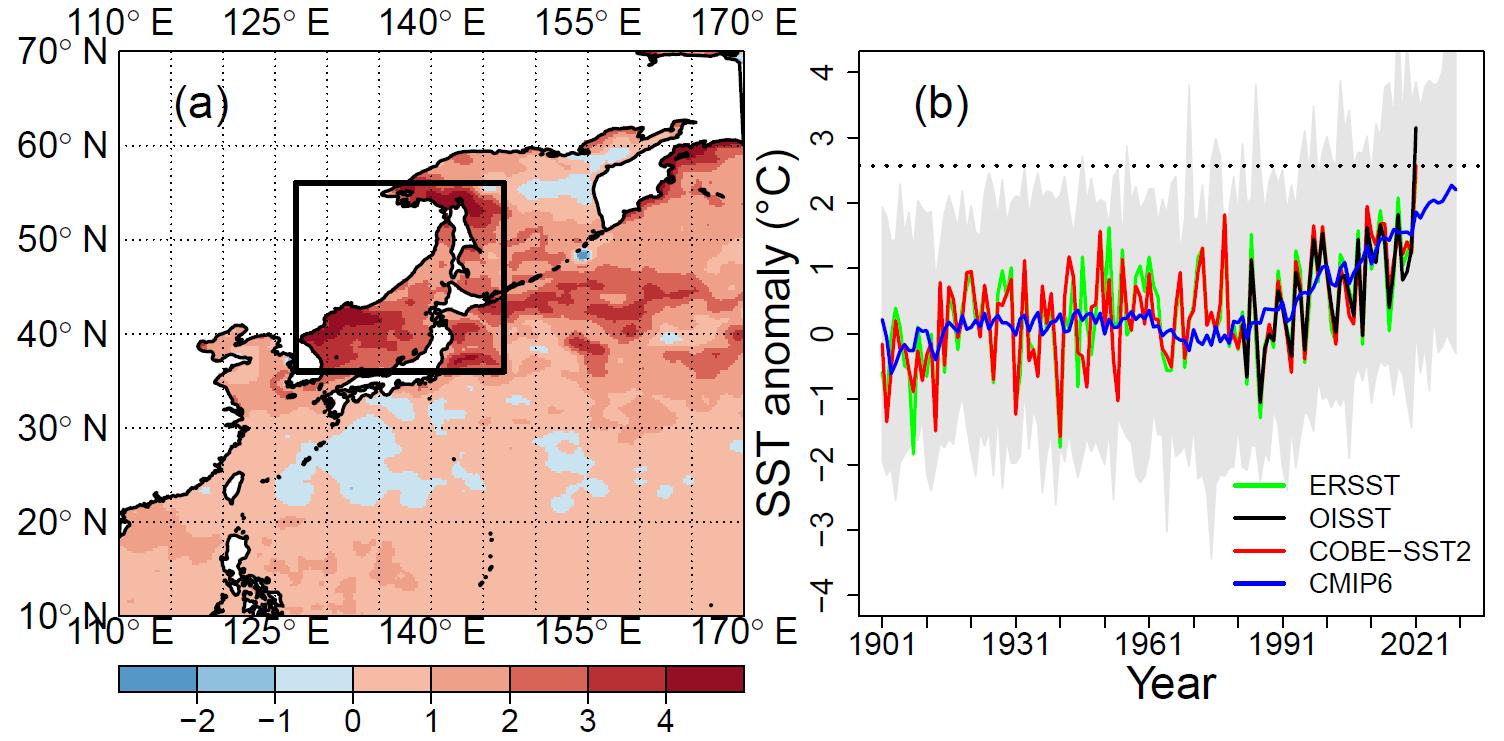
A research team led by Prof. YIN Baoshu from the Institute of Oceanology of the Chinese Academy of Sciences (IOCAS) attributed the record-breaking marine heatwave (MHW) event to global warming, atmospheric weather pattern, and El Nino Southern Oscillation (ENSO).
The study was published in Bulletin of the American Meteorological Society on Jan. 30.
In July 2021, an unprecedented MHW hit the northwest Pacific Ocean (NWP), featuring sea surface temperature anomalies (SSTa) larger than 4 °C in some coastal areas of the Japan (East) Sea and Okhotsk Sea. This event triggered an unprecedented widespread outbreak of harmful algae in the coastal waters, causing serious damage to marine ecosystems and coastal fisheries.
To estimate how human-caused climate change has influenced the likelihood of MWH, the research team combined observations with climate models from the Coupled Model Intercomparison Project Phase 6 (CMIP6), which include historical all-forcing (natural plus all anthropogenic forcing) simulations and natural-only forcing simulations without anthropogenic effects.
"According to attribution analysis, human influence was estimated to have made such an event about 43 times more likely and the return period from more than two centuries in the counterfactual world to about five years in the present climate," said Prof. YIN.
The experimental attribution analysis based on detrended SSTa revealed that the increased likelihood of this MHW was governed by the warming mean climate instead of climatic changes in SST variance. It is expected that with further ocean warming, there will be more and more frequent MHWs in the future.
"Natural weather patterns or climate variability may also play significant roles in the occurrence of this type of event," said Dr. LI Delei, first author of the study. "Our conditional attribution analysis revealed that the anticyclone atmospheric patterns and developing phase of La Nina favor the likelihood of such an event by a factor of about two, which is weaker than the anthropogenic influence."

(a) Observed temperature anomalies in July 2021 relative to the July mean of 1982-2011. (b) Time series of July SST anomalies averaged over the rectangle region in (a) from different observations and CMIP6 ensemble simulations. (Image by IOCAS)

86-10-68597521 (day)
86-10-68597289 (night)

52 Sanlihe Rd., Xicheng District,
Beijing, China (100864)

